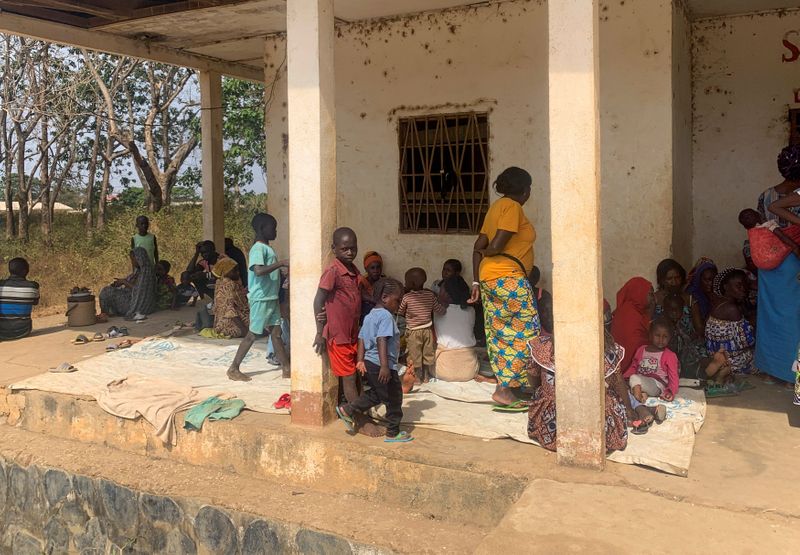By Joel Kouam and Antoine Rolland
GAROUA-BOULAI, Cameroon (Reuters) - Every day at dawn, Polycarpe Fodjo gets up from a makeshift bed under his truck and waits. He should have delivered a load of rice from Cameroon to Central African Republic over three weeks ago, but a violent rebellion across the border has halted trade.
With checkpoints closed, he and about 830 other truck drivers line up for breakfast provided by the transport union, while some perishable goods rot in the tropical heat.
The bottleneck is being felt in the markets of Central African Republic's capital Bangui, where food is scarce and prices have risen, another blow to the impoverished nation wracked by unrest and corruption.
Central African Republic (CAR) has seen a wave of violence linked to a disputed Dec. 27 election won by President Faustin-Archange Touadera.
Armed groups opposing Touadera have attacked towns and threatened to storm Bangui, sucking in CAR's army as well as French, Russian, Rwandan and U.N. forces.
"We were made to understand that after the elections the crisis could be resolved," said Fodjo, who is transporting rice for the World Food Programme.
The violence has forced over 30,000 people to flee to neighbouring countries, according to the UN Refugee Agency. Over 4,400 have gone to Cameroon, mostly to the border town of Garoua-Boulai, where Fodjo waits with his rice delivery.
CAR has had five coups and numerous rebellions since independence from France in 1960. It has been hit by militia violence since a 2013 rebellion ousted former president Francois Bozize.
Despite peace accords, arms embargoes and sanctions on militia leaders, peace has been elusive in the gold- and diamond-rich nation of 4.7 million.
In Bangui's PK5 district, a commercial hub, traders and customers are worried. Trucks are scarce, store fronts are emptying out and the price of goods is going up.
"Rice, peanuts, oil, everything is expensive. Even soap is getting expensive. Before it was 125 (CFA francs), now 200. I can't buy any more. Why are they doing this to us?" said market wholesaler Blandine Yeke.
For others, the disruption proved too much.
Benedicte Beika fled to Cameroon after a series of rebel offensives in the west. It is the second time the mother-of-five has fled violence in CAR since 2013.

"I have no intention of returning to the country ... because I'm sick, it is out of the question for me to go back and increase my suffering further," she said.